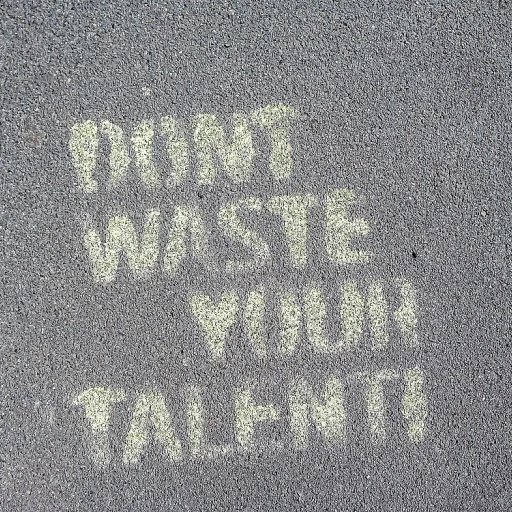
Understanding Resume Tenses
Grasping the Basics of Resume Tenses
When crafting a resume, understanding the appropriate use of tenses is crucial. The choice between past and present tense can significantly impact how your work experience and skills are perceived by potential employers. The tense you choose should align with the role you're describing and the time frame of your experience.
In general, past tense is used to describe previous roles and achievements, while present tense is more suited for your current job responsibilities. This distinction helps to clearly differentiate between what you have accomplished and what you are currently doing. For instance, when writing about a past job, you might use verbs like "managed," "developed," or "led." Conversely, for your current role, verbs like "manage," "develop," or "lead" are more appropriate.
Understanding these nuances is essential for effective resume writing. It ensures that your resume reads smoothly and professionally, making it easier for hiring managers to follow your career progression. Moreover, using the correct tense can highlight your achievements and current responsibilities more effectively, providing a clearer picture of your capabilities.
For those working remotely, this becomes even more important. Remote work often involves a blend of past achievements and ongoing projects, requiring a careful balance of tenses. As you delve into the specifics of remote work, you'll find that articulating your current role and past experiences accurately is key to showcasing your adaptability and skills in a remote setting. To further enhance your understanding, consider exploring resources on workload planning for remote teams.
Past Tense: Highlighting Achievements
Emphasizing Accomplishments with Past Tense
When it comes to writing your resume, using the past tense can be particularly effective in highlighting your achievements. This approach serves to underscore the accomplishments you have already made in your career, giving potential employers a clear picture of your capabilities. For example, when detailing past roles or completed projects, past tense verbs such as "managed," "developed," and "executed" can convey a sense of completion and success. Past tense is especially useful when discussing previous job positions that you're no longer part of. It sets a boundary between what you've achieved and your current or future endeavors, allowing you to paint a vivid picture of how your skills have evolved over time. This can be especially beneficial for those in executive roles, where past achievements are crucial to defining leadership capabilities and career trajectory. Using past tense verbs consistently is vital in ensuring your resume is both coherent and professional. Bullet points can help in organizing these experiences, ensuring each point clearly reflects your contributions and outcomes achieved. Doing so not only makes the information easier to digest but also highlights the specific skills you've mastered over your career. When detailing your work experience in a remote setting, the need to articulate past successes becomes even more crucial. Remote work demands trust and self-management, skills often demonstrated through prior achievements. Ensure your resume reflects your ability to work independently by accurately capturing those successes in the past tense. For a deeper dive into how you can leverage your remote work experience in your resume, explore more tips on exploring opportunities in remote contract work. This can offer guidance on making your past achievements stand out, particularly in the realm of remote positions.Present Tense: Showcasing Current Roles
Reflecting Your Current Responsibilities
While crafting your resume, it’s important to aptly showcase your current roles using the present tense. This approach helps you illustrate the ongoing nature of your work, particularly if you hold a job at the moment. By drawing on action verbs that capture attention, you can effectively represent the skills you are currently honing and the responsibilities you are managing.
Consider these examples when writing about your current job:
- "Lead a team of five data analysts to develop project strategies."
- "Manage communication between departments to ensure smooth operations."
- "Facilitate workshops to enhance team cohesion and promote collaborative efforts."
In construction of your sentences, it's crucial to employ strong, vivid verbs that highlight the impact of your actions. Not only does this add value to your resume, but it also improves the readability and clarity of your career trajectory. Present tense verbs might include terms like "implement," "coordinate," or "develop," each carefully chosen to convey ongoing engagement and contribution in your role.
This method of resume writing ensures that prospective employers understand your current role and contributions, positioning you as an active and engaged team member. Meanwhile, remember to balance your resume with past tense phrases to highlight achievements and experience gained from previous roles. This approach gives a well-rounded picture of your career and the breadth of your professional capabilities.
Remote Work Specifics
Remote Job Considerations for Resume Tenses
When crafting a resume for a remote job application, the choice between past and present tenses can be crucial in effectively showcasing your work experience and abilities. While traditional resumes focus on past achievements and current roles, remote work requires a nuanced approach. For remote roles, your current responsibilities are often more relevant to prospective employers. Describe these roles using present tense verbs. This tense helps in showcasing your day-to-day contributions and current skills in an active and engaging way. Present tense is particularly effective when you want to highlight your capability to adapt to a remote work environment and collaborate with teams despite the physical distance. Examples of Present Tense Usage:- Manage a team of five remote developers using collaborative project management tools.
- Coordinate virtual meetings and conference calls to ensure seamless workflow.
- Analyze data for ongoing projects to enhance remote work productivity.
- Developed a data-driven approach for optimizing remote work efficiency.
- Led a cross-functional team in a successful project delivery, improving client satisfaction by 15%.
- Implemented a successful training program for remote employees, resulting in a 20% productivity increase.
Common Mistakes to Avoid
Common Pitfalls in Resume Tenses
When crafting your resume, it's crucial to pay attention to the tenses you use. Missteps in verb tense can lead to confusion and may detract from the clarity of your career narrative. Here are some common mistakes to avoid:
- Inconsistent Tenses: One of the most frequent errors is mixing past and present tenses within the same section. For example, if you're describing a past role, ensure all verbs are in the past tense. Conversely, use present tense verbs for your current job responsibilities.
- Incorrect Use of Past Tense: When detailing achievements or completed tasks, always use the past tense. This helps to clearly communicate that these accomplishments are part of your work experience history.
- Misuse of Present Tense: Reserve the present tense for duties and responsibilities you are currently handling. This is especially important in the context of remote work, where your current role might involve ongoing projects or team collaboration.
- Overlooking Action Verbs: Whether in past or present tense, using strong action verbs is key to making your resume stand out. Words like "managed," "developed," and "implemented" can effectively convey your skills and contributions.
By avoiding these common mistakes, you can ensure that your resume is not only grammatically correct but also effectively communicates your career journey. Remember, a well-written resume is a powerful tool in showcasing your professional experience and skills.
Tips for a Balanced Resume
Striking the Perfect Tense Balance
Crafting a resume that effectively communicates your career journey involves a delicate balance of past, present, and even future skills. Here’s how to make sure your resume stands out for the right reasons.- Combine Tenses Wisely: Use past tense to emphasize completed achievements and roles. Highlight your accomplishments and what you have done effectively in previous positions. This helps frame your work experience in a context that is easy to read and impactful.
- Present for Present Roles: For the roles or responsibilities you currently hold, apply present tenses. It allows your current job activities to feel vibrant and ongoing. Don’t forget the importance of using action verbs to showcase your contributions.
- Tailor to Current Roles: Make sure your resume written examples align with your current goals and job aspirations. Tailoring your vocabulary and descriptions to the role you’re seeking shows recruiters that you’re both adaptable and forward-thinking.
- Avoid Overly Complex Verbs: Keep it simple. Complex verb structures or inconsistent tense use can confuse the reader and detract from your achievements. Stick to clear and concise writing.













